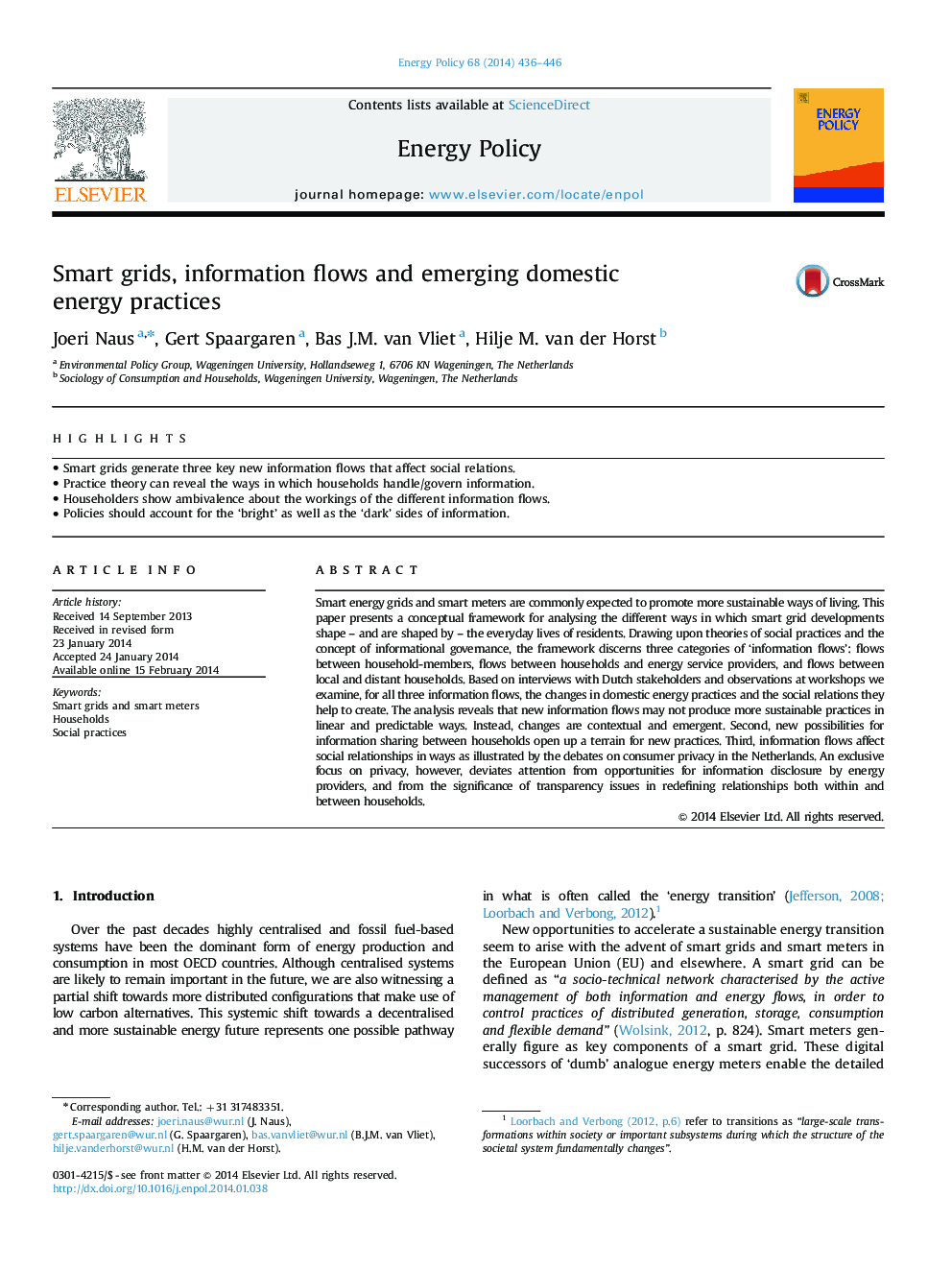| Article ID | Journal | Published Year | Pages | File Type |
|---|---|---|---|---|
| 7402406 | Energy Policy | 2014 | 11 Pages |
Abstract
Smart energy grids and smart meters are commonly expected to promote more sustainable ways of living. This paper presents a conceptual framework for analysing the different ways in which smart grid developments shape - and are shaped by - the everyday lives of residents. Drawing upon theories of social practices and the concept of informational governance, the framework discerns three categories of 'information flows': flows between household-members, flows between households and energy service providers, and flows between local and distant households. Based on interviews with Dutch stakeholders and observations at workshops we examine, for all three information flows, the changes in domestic energy practices and the social relations they help to create. The analysis reveals that new information flows may not produce more sustainable practices in linear and predictable ways. Instead, changes are contextual and emergent. Second, new possibilities for information sharing between households open up a terrain for new practices. Third, information flows affect social relationships in ways as illustrated by the debates on consumer privacy in the Netherlands. An exclusive focus on privacy, however, deviates attention from opportunities for information disclosure by energy providers, and from the significance of transparency issues in redefining relationships both within and between households.
Keywords
Related Topics
Physical Sciences and Engineering
Energy
Energy Engineering and Power Technology
Authors
Joeri Naus, Gert Spaargaren, Bas J.M. van Vliet, Hilje M. van der Horst,
